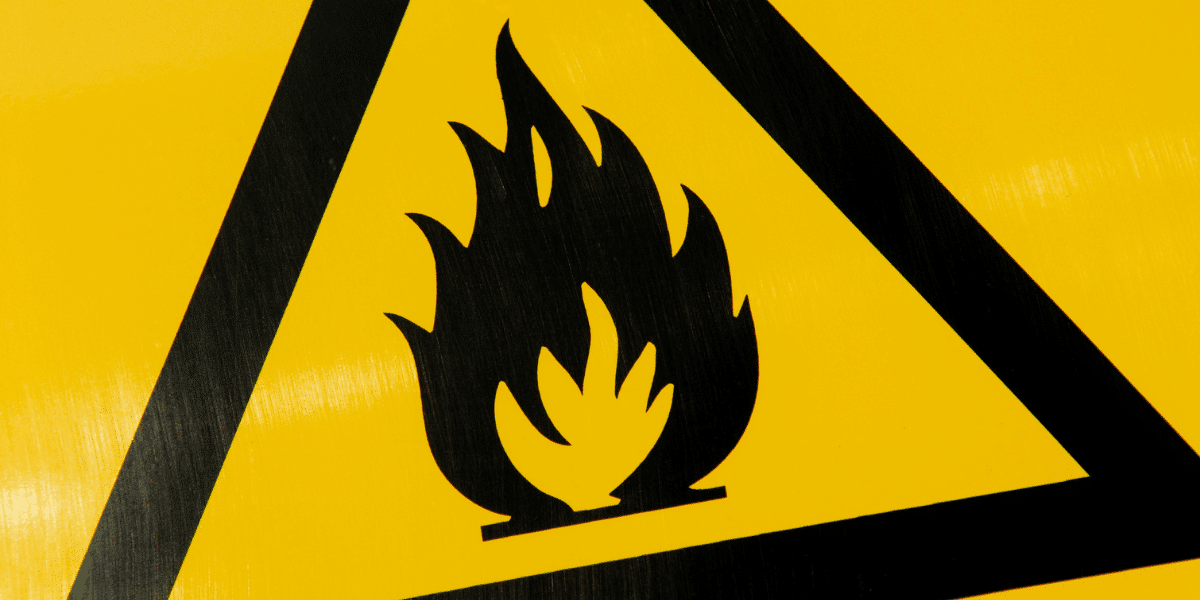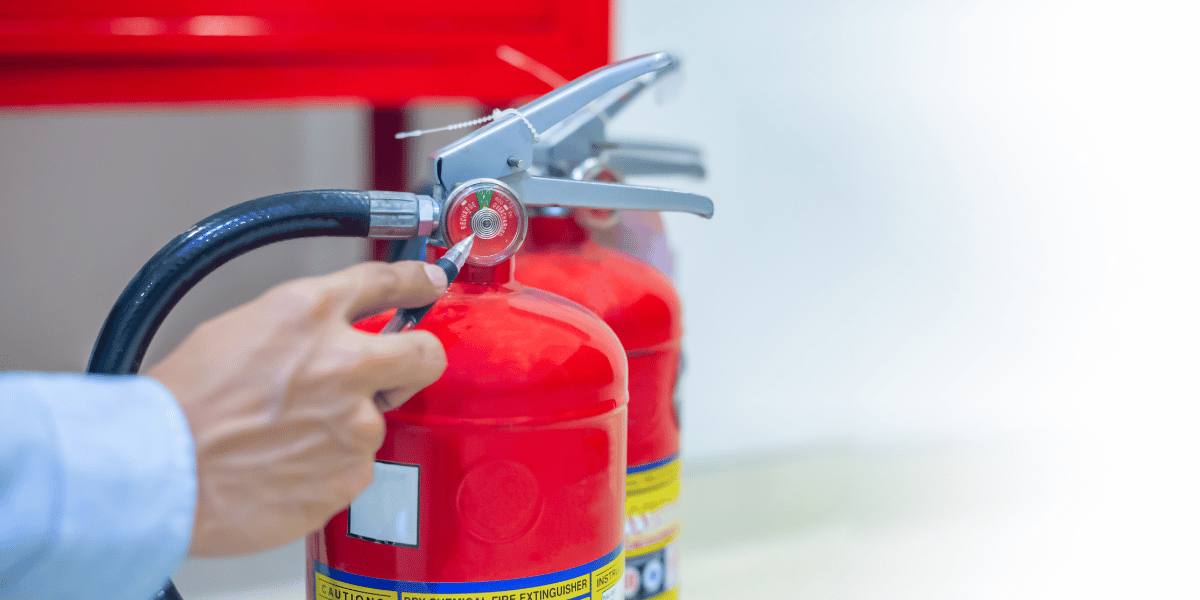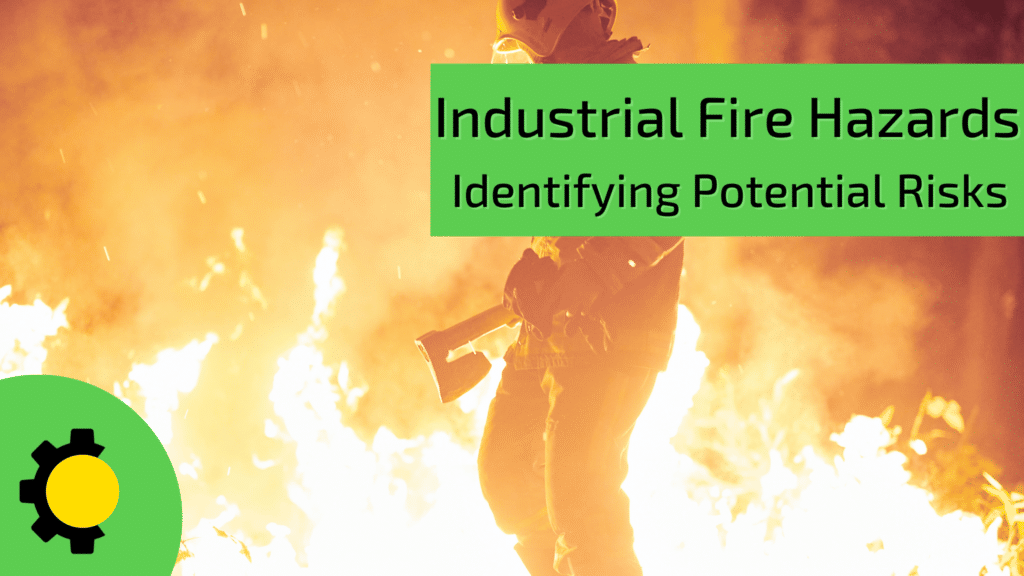Fires can have devastating effects on industrial facilities, putting people’s lives and valuable assets at risk. That’s why it’s crucial to understand the potential fire hazards in these settings. So, we’ll explore the importance of identifying risks and how fireproofing can help protect industrial facilities.
Common Causes of Industrial Fires
Industrial facilities are susceptible to various fire hazards that can lead to catastrophic consequences. It’s crucial to identify these risks to prevent fires and minimize their impact. Let’s take a closer look at some common fire hazards in industrial settings:
- Electrical hazards: Faulty wiring, overloaded circuits, and electrical equipment malfunctions can ignite fires. Identifying potential electrical hazards and ensuring proper maintenance can greatly reduce the risk of electrical fires.
- Flammable materials: Many industrial processes involve the use of flammable substances like fuels, gasses, solvents, or chemicals. Accidental leaks, improper storage, or mishandling of these materials can result in fires. Proper storage, handling protocols, and risk assessments are essential to mitigate this hazard.
- Heating and ignition sources: Industrial processes often rely on heat sources, such as furnaces, boilers, or welding equipment. If not properly controlled, these sources can ignite surrounding flammable materials. Ensuring proper installation, maintenance, and monitoring of heating and ignition sources is crucial.
- Machinery and equipment: Malfunctioning machinery, overheating equipment, or friction can generate sparks or cause fires. Regular inspection, maintenance, and training employees on proper use and maintenance of machinery can help minimize this risk.
By identifying these fire hazards and implementing preventive measures, facilities can reduce the likelihood of fires and enhance safety.

The Importance of Fireproofing
Fireproofing plays a critical role in safeguarding industrial facilities from the devastating effects of fires. Let’s explore why fireproofing is essential:
- Prevention of fire spreading: Fire-resistant coatings reduce the spread of fires by providing a protective layer that delays their progression. This buys valuable time for evacuation and allows emergency responders to control the situation more effectively.
- Protecting critical infrastructure: Industrial facilities often house valuable equipment, machinery, and sensitive materials. Fireproofing helps shield these assets from heat and flames, reducing the risk of damage or destruction. This helps minimize downtime, operational disruptions, and financial losses.
- Ensuring personnel safety: Fireproofing measures create a safer environment for employees. By slowing down the spread of fires and reducing heat transmission, fireproofing provides additional time for safe evacuation. It also helps prevent structural collapse, reducing the risk of injuries or fatalities.
- Meeting regulatory requirements: Fireproofing is often a legal requirement for industrial facilities. Compliance with fire safety regulations not only ensures the safety of occupants but also helps prevent legal consequences and potential liabilities.
Investing in fireproofing measures demonstrates a commitment to fire safety and protects both people and assets. By working with experienced fireproofing professionals, industrial facilities can implement effective solutions tailored to their specific needs.
Fire Safety Training and Employee Awareness
Fire safety training and promoting employee awareness are vital components of maintaining a fire-safe environment in industrial facilities. Let’s explore their importance:
- Training programs: Providing employees with fire safety training equips them with knowledge and skills to prevent fires and respond in emergencies. Training should cover evacuation procedures, proper use of fire extinguishers, and awareness of emergency exits and assembly points.
- Promoting a proactive safety culture: Fostering a culture of fire safety starts with engaging employees and encouraging their active participation. Encourage them to report potential fire hazards and provide suggestions for improvement. By involving employees in safety initiatives, everyone becomes responsible for maintaining a fire-safe environment.
- Conducting regular drills and exercises: Regular fire drills and exercises help familiarize employees with emergency procedures and enhance their preparedness. These simulations create a sense of readiness, ensuring a prompt and organized response in case of a fire.
- Continuous reinforcement and communication: Fire safety should be an ongoing conversation. Regularly remind employees about fire safety practices, distribute educational materials, and communicate any updates or changes in procedures. Encourage open communication channels for reporting concerns or discussing safety-related matters.
Through training and employee awareness, facilities can empower their workforce to prevent fires, respond effectively, and protect themselves and others.

Ongoing Maintenance
Regular maintenance and periodic review of fireproofing measures are essential to ensure their continued effectiveness. Let’s explore why ongoing maintenance and review are important:
- Regular inspections and maintenance: Conduct routine inspections to ensure fireproofing materials, coatings, and systems are in good condition. Promptly repair or replace any damaged or worn-out components to maintain their effectiveness.
- Upkeep of fire detection and suppression systems: Test and maintain fire detection and suppression systems. These include smoke detectors, sprinklers, and fire extinguishers. Regularly check their functionality and address issues promptly to ensure they are ready for use in case of a fire.
- Periodic review and update of fire safety plans: Regularly review and update fire safety plans, evacuation procedures, and emergency response protocols. Consider changes in facility layout, processes, or occupancy that may impact fire risks. Communicate updates to employees and provide necessary training.
With maintenance and review, companies ensure that their fireproofing measures remain effective and aligned with evolving fire safety standards.
Collaboration with Fireproofing Professionals
Working with experienced fireproofing professionals is crucial for ensuring the effectiveness and reliability of fire safety measures. Let’s explore the benefits of collaboration:
- Expert knowledge and guidance: Fireproofing professionals possess specialized knowledge and expertise in assessing fire risks and implementing effective fireproofing solutions. Additionally, they have a thorough understanding of fire ratings and codes. Their experience enables them to identify vulnerabilities specific to industrial facilities and recommend suitable fireproofing measures.
- Tailored solutions: Fireproofing professionals can customize solutions based on the unique requirements of each industrial facility. They consider factors such as facility layout, processes, materials, and regulatory compliance to develop a comprehensive fireproofing strategy.
- Compliance with standards and regulations: Fireproofing professionals stay updated with fire safety standards and regulations. By collaborating with them, industrial facilities can ensure that their fireproofing measures meet the necessary compliance requirements.
- Quality installation and ongoing support: Fireproofing professionals provide quality installation, ensuring materials are properly applied and functional. They also offer ongoing support, such as maintenance services and inspections, to ensure the continued effectiveness of fireproofing measures.
By collaborating with fireproofing professionals, companies leverage their expertise, receive tailored solutions, ensure compliance, and receive quality installation and support.
Conclusion
Fireproofing is an essential aspect of maintaining a safe industrial facility. By understanding the potential fire hazards and importance of fireproofing, you can effectively safeguard your business and employees.
At Sunlight Contractors, we offer top-notch commercial fireproofing solutions. Our team of experts is dedicated to creating a fire-safe environment for your business. We’ll help in protecting your valuable assets, and ensuring the well-being of your personnel.
Don’t compromise on fire safety. Take action today and contact us for all your industrial fireproofing needs.

